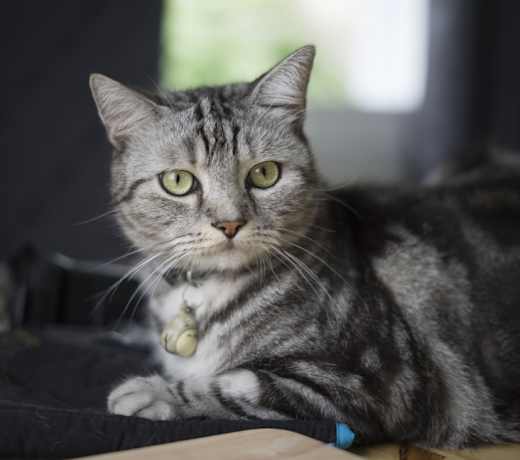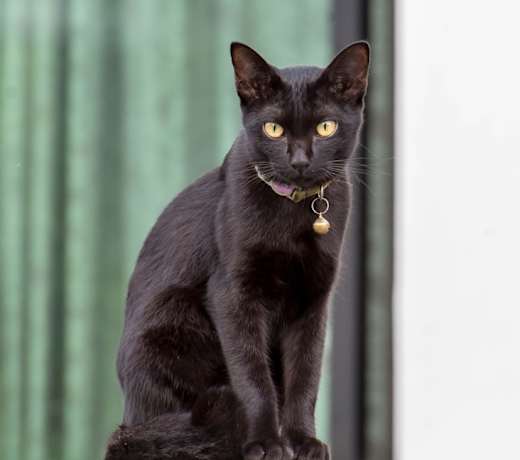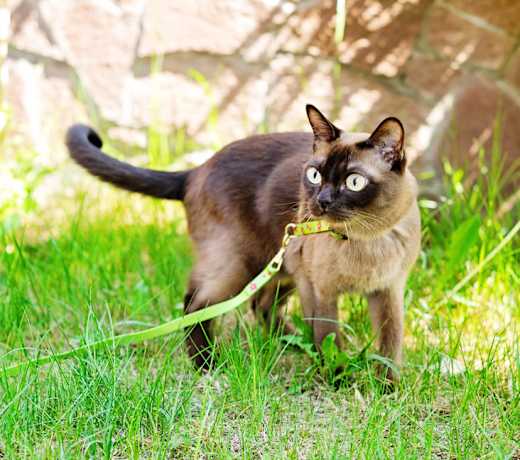British Shorthair eyes can be copper, gold, blue, and various shades of green. British Shorthairs with blue coats typically only have gold eyes, and white, golden, and silver-coated Shorthairs generally have blue or green eyes.
British Shorthair
Breed Type: Persian
Common nicknames: Shorthairs, British Blue, Brit
Coat: Short-haired
Hypoallergenic: No, they will likely trigger allergies.
Temperament: Friendly, calm, gentle, intelligent
Life expectancy: 14-20 years
Color & patterns:
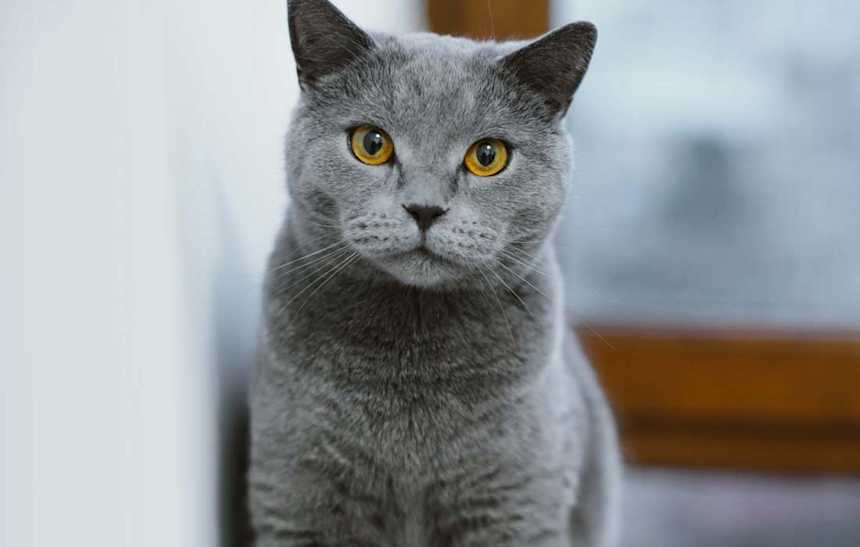
It’s hard not to be charmed by the British Shorthair’s teddy bear-like round face, deep-set, sparkling eyes, and plush coat. These loving cats have a history that dates back to the domestic cats of Rome and have ruled the roost (and our hearts) for centuries in Britain and beyond. This breed’s appeal goes beyond their irresistible good looks, though. British Shorthairs are the epitome of “easy-going” and are famous for their calm dispositions. Picture a cat lounging on a sunny window sill or quietly purring while watching the world go by — that’s a quintessential British Shorthair. With an unmatched blend of beauty, strength, and a “keep calm and carry on” attitude, these charmers are as endearing as they are steady.
British Shorthair characteristics
Learn about about British Shorthair basics like their fur colors, shedding levels, how much grooming they need, and other British Shorthair facts.
Average height
12-16 inches (30.5-40.6cm)
Average weight
8-17 pounds (3.6-7.7 kg)
Average lifespan
14-20 years
Good with other cats
Good with dogs
Affection
Shedding
Health
Exercise needs
What is the rarest color of a British Shorthair cat?
One of the rarest colors of the British Shorthair is fawn, which is a lighter lilac hue. The cinnamon coat color is also considered quite rare.
What color are British Shorthair cats?
British Shorthair cats come in blue, black, white, cream, chocolate, cinnamon, and lilac. They also flaunt different coat patterns such as solid, bi-color, tabby, and colorpoint. British Shorthairs may come in other colors that are not recognized by the breed standard.
What age do British Shorthair cats stop growing?
By age three, British Shorthair cats will stop growing and reach their full adult size. While the majority of their physical growth occurs within the first few years of life, some cats may show subtle changes in size and weight up until the age of five.
How big do British Shorthair cats get?
British Shorthairs weigh between eight and 18 pounds and stand 12 to 16 inches tall. This breed is recognized for its substantial and muscular build and often reaches a medium to large size.
Are there different types of British Shorthair cats?
No, there is just one type of British Shorthair cat. But even though the most popular color is British Blue (actually gray-colored fur), the breed comes in a variety of shades and patterns.
How long do British Shorthairs live?
British Shorthairs tend to live between 14 and 20 years, with factors such as genetics, lifestyle, and healthcare influencing that number. A healthy diet, regular veterinary check-ups, and a comfortable living environment all contribute to the well-being and lifespan of British Shorthair cats.
British Shorthair temperament
Learn about about the British Shorthair temperament and how well they fit into your lifestyle, home environment, and family.
Are British Shorthair cats friendly?
Yes, British Shorthairs have a friendly, easygoing nature. They are affectionate without being overly demanding, making them suitable companions for many different living situations.
Do British Shorthairs meow a lot?
No, British Shorthairs don’t tend to meow much. Compared to other breeds, they are quieter, and their vocalizations are often soft and gentle. But cats are individuals, so some British Shorthairs may be more talkative than others.
Are British Shorthair cats good with other cats?
Yes, British Shorthairs tend to be good with other cats because of their calm temperament and nonconfrontational demeanor. While individual personalities vary, British Shorthairs often tolerate (and even form close bonds with) other cats in the household. Proper introductions, initially providing separate spaces, and offering positive reinforcement all contribute to successful relationships between British Shorthair cats and other kitties.
Are British Shorthair cats good with dogs?
Yes, British Shorthair cats are known to be good with dogs, especially if introduced gradually and given time to adjust. Early socialization, positive interactions, and providing safe spaces for both animals will contribute to successful relationships between British Shorthair cats and dogs.
Are British Shorthair cats good pets?
Yes, British Shorthair cats are considered excellent pets. These cats are known for their gentle and easygoing nature, making them loving and adaptable companions. Their calm temperament, combined with soft, fluffy looks and minimal grooming requirements, makes them ideal pets.
Do British Shorthair cats scratch furniture?
Yes, British Shorthair cats may scratch furniture as a natural instinct to mark territory, sharpen claws, and stretch. They may not be as destructive in their scratching habits as some other breeds, but providing appropriate outlets for this behavior is essential. Providing scratching posts (or pads) and using deterrents on furniture can help redirect their scratching tendencies. Regular nail trimming can also be part of a preventive strategy.
Are British Shorthair cats intelligent?
Yes, British Shorthair cats are known for their intelligence. They are problem solvers, adapt well to new environments, and can learn routines quickly. While they are not as active or prone to interactive play as some breeds, their ability to assess situations and their overall resourcefulness show that they are smart kitties.
Are British Shorthair cats lazy?
No, British Shorthair cats are not lazy, but they are pretty chill. These kitties tend to be less active than some other breeds, preferring to lounge about and observe their surroundings. That said, regular play and mental stimulation are still important to keep them healthy and engaged.
Are British Shorthair cats aggressive?
No, British Shorthair cats are not known for being aggressive. In fact, they are quite tolerant. These easygoing cats are well-suited for all kinds of families and living situations. While individual personalities can vary, aggression is not a common trait in the breed.
Are British Shorthair cats playful?
Yes, British Shorthair cats can be playful. These cats may not be as active as other breeds, but they do have short bursts of energy, engaging in play and interactive activities. They particularly like chasing toys, batting at feather wands, and participating in gentle games.
Are British Shorthairs cuddly?
Yes, British Shorthairs are known to be cuddly. They enjoy spending quiet moments with their pet parents, often lounging beside them or on their laps. They don’t demand attention, but British Shorthairs will form strong bonds with their human buddies and appreciate shared affection.
British Shorthair history
Learn about where the British Shorthair came from.
What were British Shorthair cats bred for?
The British Shorthair cats were originally bred to help control rodent populations in the United Kingdom. Over time, as the breed turned pedigree, their charming appearance and calm temperament gained popularity, and they transitioned from primarily working cats to beloved companions.
Where are British Shorthair cats from?
British Shorthair cats originated in the United Kingdom, where they developed naturally over time. The breed’s history can be traced back to the domestic cats of ancient Rome, which were brought to Britain by the invading Romans. The British Shorthair established itself as a distinct breed in the United Kingdom during the late 19th century.
British Shorthair health
Learn about about the British Shorthair health outlook and what diseases they may be prone to at various stages of their life.
Are British Shorthair cats brachycephalic?
Yes, British Shorthair cats have a slightly brachycephalic head shape, with a round face and a relatively short nose. Still, British Shorthairs don’t usually suffer from the chronic breathing problems or eye infections associated with brachycephaly. Because their tear ducts and noses are not excessively ill-proportioned, they have far fewer respiratory issues associated with extreme brachycephalic features.
Can British Shorthair cats jump?
Yes, British Shorthair cats can jump. They are just not as agile or athletic as cat breeds such as Abyssinians. British Shorthairs’ sturdy build and slightly rounder body limit their vertical leap compared to more slender cat breeds.
Can British Shorthairs be left alone?
Yes, British Shorthair cats can be left alone and are quite independent and adaptable. While they enjoy the companionship of their pet parents, being left alone doesn’t usually cause them excessive stress or anxiety. Toys, scratching posts, and cozy spots for lounging help ensure they’re content during solo hours.
Should British Shorthair cats go outside?
No, British Shorthair cats should not go outside — unless they’re in a secure, supervised area such as an enclosed garden or catio that will ensure their safety. It is recommended that all cats be kept indoors to protect them from potential outdoor hazards such as traffic, predators, and disease.
Do British Shorthair cats shed?
Yes, British Shorthair cats do shed moderately. They have dense, short to medium-length coats that require regular grooming to minimize shedding and prevent matting. Brushing their fur a few times a week helps remove loose hairs and keeps their coat in good condition.
Can you shave a British Shorthair cat?
Shaving a British Shorthair cat is not recommended unless under the guidance of a veterinarian for a specific medical reason. Their coats help regulate body temperature and provide protection, so shaving can expose a cat to sunburn and other skin issues. If you have matting or grooming concerns, consult your veterinarian for help addressing them through regular brushing and grooming rather than resorting to shaving.
Can British Shorthair cats have breathing problems?
Yes, British Shorthair cats can have breathing problems, but they are not common. In some cases, British Shorthair cats may develop breathing problems due to their slightly brachycephalic head shape. Because individual health can vary, be sure to monitor your British Shorthair cat for any signs of respiratory distress and seek veterinary care.
Are British Shorthair cats hypoallergenic?
No, British Shorthair cats are not considered hypoallergenic. These cats shed dander, which can trigger allergies in sensitive individuals. The level of allergens will vary with each cat, and reactions will depend on a person’s specific allergies.
It’s recommended that prospective pet parents spend time with a British Shorthair before deciding to adopt the cat. They should also maintain a clean living environment and factor in grooming practices to manage potential allergic reactions.
Are British Shorthair cats healthy?
Yes, British Shorthair cats tend to be a healthy breed with quite a long lifespan. They are, however, prone to diseases including:
Polycystic kidney disease (PKD): PKD is a hereditary condition in which fluid-filled cysts develop in the kidneys, potentially leading to kidney failure over time. Affected cats may experience complications such as urinary issues and a decline in renal function.
Hypertrophic cardiomyopathy (HCM): HCM is a heart condition characterized by the abnormal thickening of the heart’s left ventricle, hindering proper blood flow. It is the most prevalent cardiac disease in felines and can lead to complications such as heart failure or sudden death.
Hyperthyroidism: This is a common endocrine disorder in which the thyroid produces an excess of hormones. This condition usually results in an increased metabolic rate, leading to weight loss, increased appetite, and hyperactivity.
Dental disease: Cats are also prone to periodontal disease and should have their teeth brushed two to three times a week.
Find British Shorthair kittens near you
Adopting a British Shorthair
Learn about acquiring a British Shorthair - the pros and cons of adopting versus going through a breeder, and associated costs.

Bella
British Shorthair
Female, young
Los Angeles, CA
Good with dogs
House-trained
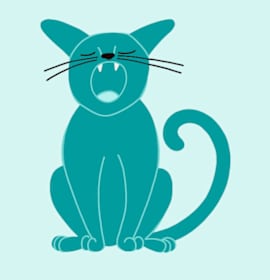
kittens
British Shorthair
Female, kitten
Garden Grove, CA
Not good with dogs
Good with cats
House-trained
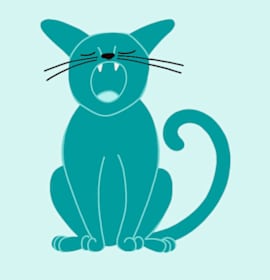
kittens
British Shorthair
Female, kitten
Garden Grove, CA
Not good with dogs
Good with cats
House-trained

Bella
British Shorthair
Female, young
Los Angeles, CA
Good with dogs
House-trained

kittens
British Shorthair
Female, kitten
Garden Grove, CA
Not good with dogs
Good with cats
House-trained

kittens
British Shorthair
Female, kitten
Garden Grove, CA
Not good with dogs
Good with cats
House-trained

